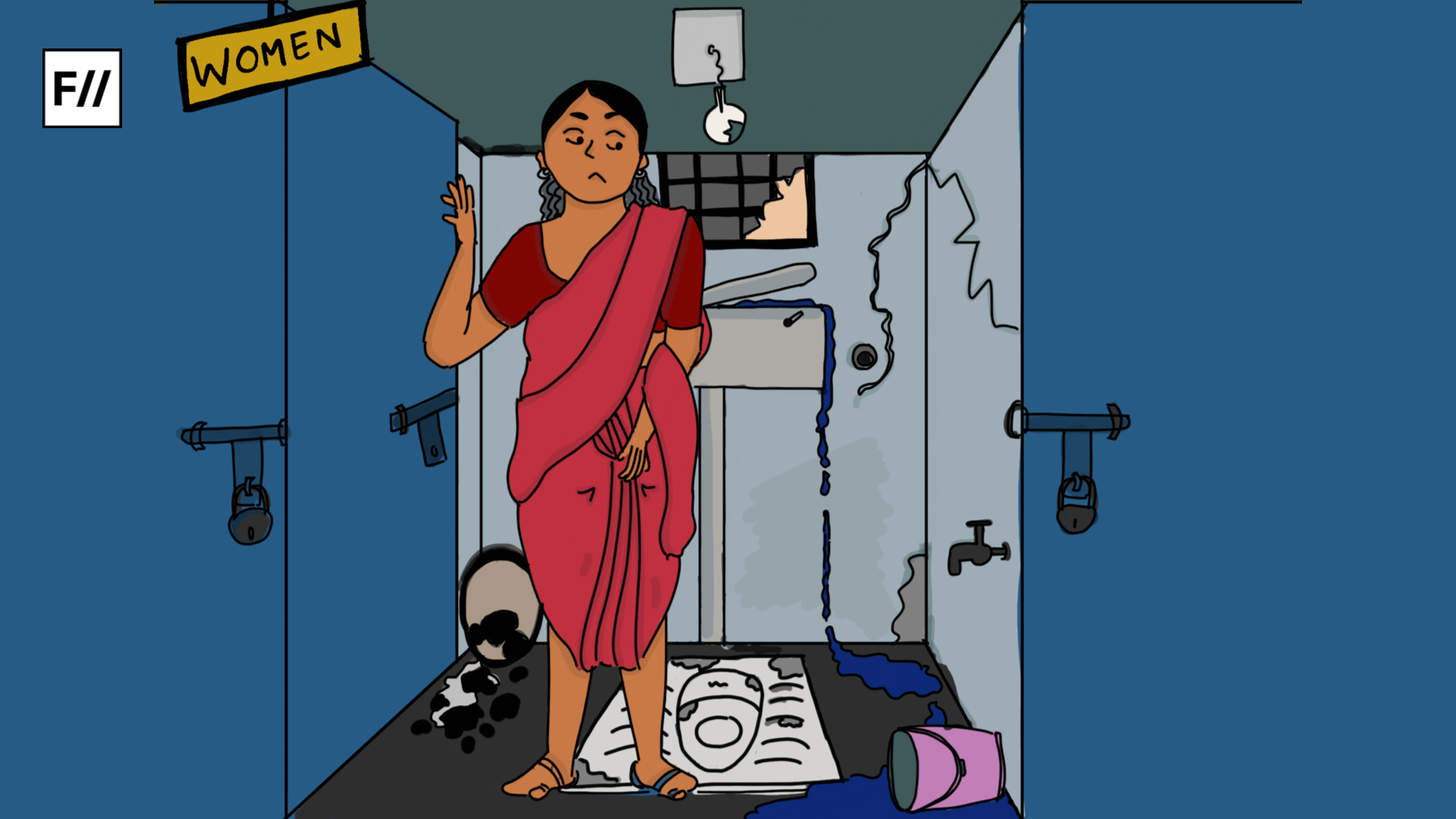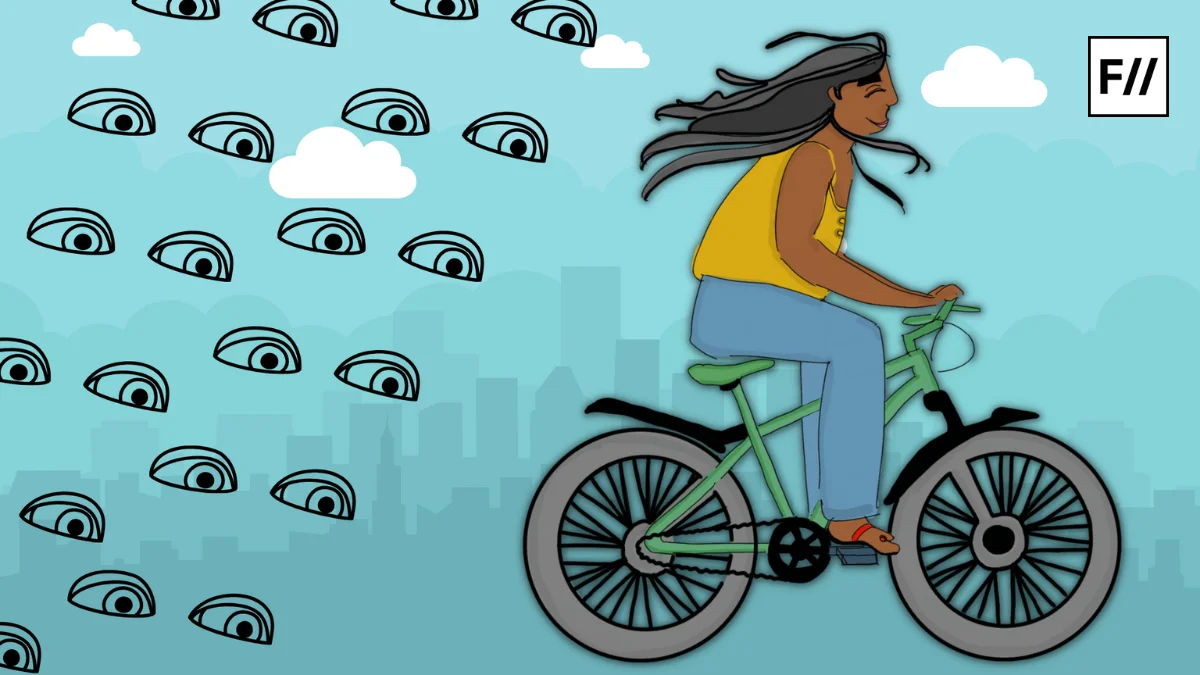Holding the loose end of her saree to her nose, Gudiya reluctantly walks into a washroom in the emergency ward of Dr Susheela Tiwari Memorial Forest Hospital in Haldwani, Uttarakhand. Gudiya is not being treated at the emergency ward but is forced to use the washroom there because the public toilets within the hospital premises charge a Rs 10 fee to use the service.
“It’s really dirty, but what are you going to do? When you have to go, you just go,” said Gudiya. Inside was a visibly dirty Indian toilet with a large garbage bag open for use where a sink should be.
Gudiya is a single mother who works as a domestic worker to support her three daughters. The money is scarce, so she has to be mindful of every penny she uses. Spending 10 rupees every time she uses the washroom is not something she can always afford.
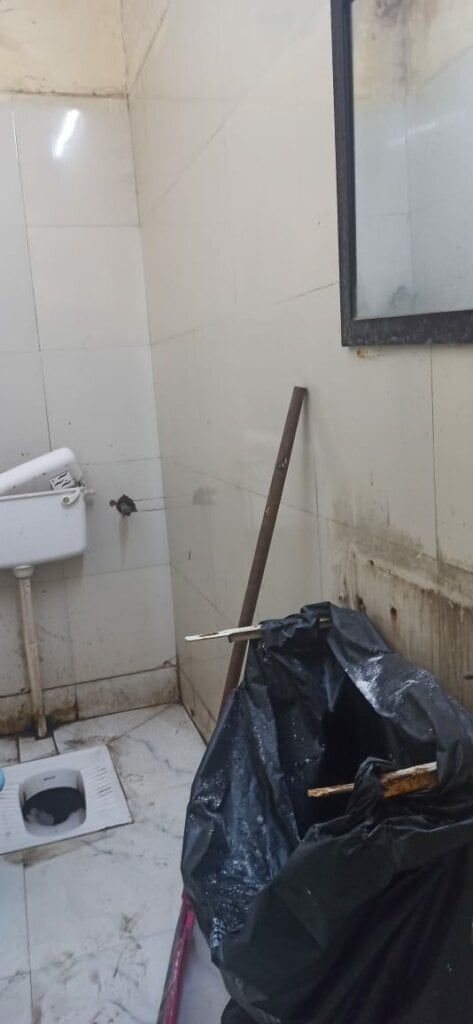
“All my money is spent on rent, feeding my children and medical expenses. Both I and my daughter are unwell, so there are times when we just don’t have the money for using a paid toilet,” said Gudiya.
Many travel from far-off places and remote villages to get themselves or their families affordable treatments for their ailments at Dr Susheela Tiwari Hospital. It is one of the biggest and most accessible government hospitals in the Kumaon Zone of Uttarakhand. Many have to spend days on the premises. There is never a dull day in this hospital. Despite the number of people coming and going, there are no free toilet services. To save money, many men relieve themselves outside the hospital, whereas women look for wards within the hospital to use the service.
Even though the primary goal of the Swachh Bharat mission is to provide public washrooms, the clean and accessible public washrooms charge a fee ranging from Rs 5–10, while the free washrooms are either extremely dirty, lack water, without a latch, or do not exist. The existing public toilets also very often go unused because no one takes responsibility for them. If they are insecure or dangerous, filthy, without water, broken, too costly, or closed at night, women will take the risk of going to urinate and defecating in the open air.
Even in railway stations the only clean toilets available are the ones that demand money from the people. In Haldwani railway station the toilets for women and disabled people have been locked for years now. This is a common theme throughout India.
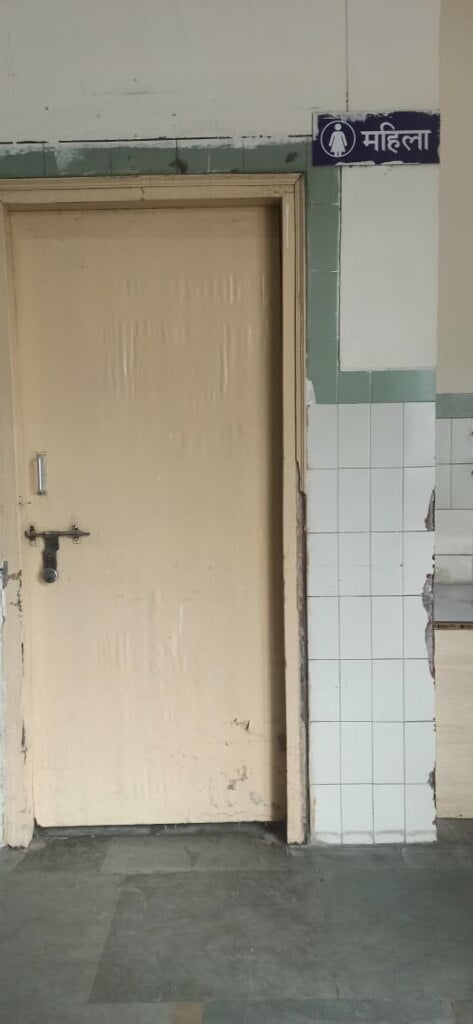
The lack of clean and accessible toilets makes them vulnerable to many diseases like UTIs and makes them feel unsafe due to harassment and violence, which then affects their social mobility and work opportunities. Many women working as unskilled labour are denied the basic necessity of sanitation or are denied employment because it would necessitate the administration to provide “extra” resources.
Many construction sites that do not already have a toilet available often do not build a toilet solely for the labour force and instead rely on public washrooms if they are available in the area. The presence of a public toilet doesn’t come in the way of male workers as they relieve themselves in the open air. For women, this becomes a huge factor in choosing jobs accordingly.
“I moved from Madhya Pradesh for work, and while I’m far away from my hometown, such long projects at least ensure necessities like a washroom on site, as we often live at the site itself. Our children also stay with us, making it easier for me to work and care for them at the same time,” said Sarita, a construction worker in Uttarakhand.
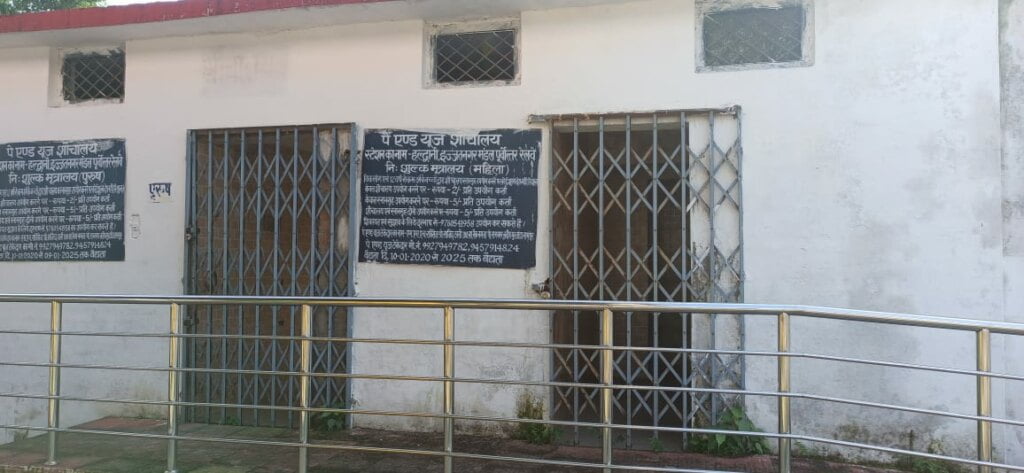
But such jobs are also not available for women and men are actively prefered for these jobs.
“Hiring a woman as a labourer is not something many prefer. The safety of women becomes an issue in such circumstances. The sites are in extremely secluded places, we cannot take that kind of responsibility,” told Faiz, a contractor in Maharashtra.
The majority of street vendors are also affected by the lack of clean, easily accessible restrooms. These women sit for hours in a place that forces them to either resist the urge to use the restroom or find a spot in the open air.
“I sit without going to the toilet as much as I can, however when I have to go I call my son to pick me up and drop me home. Many women here cannot afford to lose 10 minutes going to and fro and so many go use this abandoned plot across the road to relieve themselves,” said Kamala, a street vendor.
For people living on pavements, the accessibility of public toilets becomes a crucial part of their life. Kaniya, a mother of three, is a sculptor living on the side of the road, selling handmade statues of the Hindu Gods. She and the women of her family have to wake up at 5 am to go use the washroom where each gives a fee of Rs 5.
“We only use the toilet facilities once a day. We go early in the morning so we don’t have to wait long in line, and we try to hold it as much as possible during the day and use the empty plot behind our jhuggi at night. It would have been easier if there was a free toilet nearby,” Kaniya said.
Many women have to wait in long queues as usable toilets are fewer in number. According to a recent report, India has the most women waiting to use the toilet.
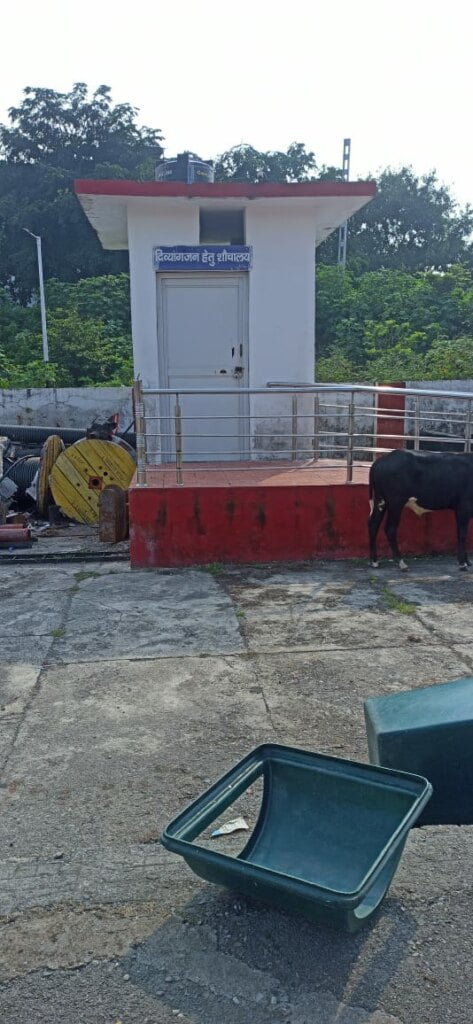
Sanitation programs are still often carried out without a full understanding of the role of gender and other aspects of identity in preventing people from accessing sanitation. Caste, class and economical status also play a big role. While the people from the privileged sections can access free washrooms in business establishments like cafes, and malls. Most workers are not even allowed to enter the premises.
Women working as domestic workers are also not allowed to use the family toilet or are provided with a different toilet. Casteism plays a prominent part in upholding such discriminating practices.
“In one of the households that I work in, they don’t let me use the toilet that I clean for them, there is a different one down the stairs for me to use,” Gudiya told.
The concept of providing toilet facilities at work has not yet reached rural areas where many do not even have toilets built in their homes. In 2019, Prime Minister Narendra Modi announced that 699 districts and 599,963 villages had declared themselves as free from open defecation under the Swachh Bharat Mission. However, the National Family Health Survey-5 (NFHS-5, 2019-20), a household-level demographic and health survey, revealed that rural households in only five states—Kerala, Manipur, Mizoram, Nagaland, and Sikkim—had 100% toilet access. In rural areas, Bihar, Gujarat, Karnataka, and Maharashtra had less than 80% access to toilets.
“There is a misconception that there are not many working women, it’s just their numbers are not recorded in any data. The largest number of women who are working are in the agriculture sector, these are mostly Dalit and Adivasi women who are landless and work on the lands of zamindars. You will not find any toilet facilities for these women.” said Nirmal Gorana, convener of Mazdoor Awas Sangharsh Samiti.
The lack of proper toilets also induces psychosocial stress as many are then exposed to unsafe situations. In Dharavi, Mumbai where every inch of space is utilised for human living with 10 people living in the same room and renting space in terms of hours, building toilets in every home is not possible. A public washroom is a norm in such places where a monthly pass is made to access toilets. However many are exposed to sexual violence in such circumstances where many men loiter around the women’s washroom.
“The windows of the women’s toilets are all busted by men who loiter peeping through at women using the facilities. It is a consistent problem for women. They can’t go use the facilities at night because of these situations and in the daytime also they have to deal with the same things. A lot of the women wake up early to use the toilet to avoid such an imminent threat,” said Sanket, a member of Theater Workers, an organisation that performs plays to bring forth the issues faced by the people of socio-economically weaker sections.
The helplessness of these women is pretty evident with no hope for them to have the basic sanitation rights for them
“Of course, we hope for better facilities but who is going to listen to us? This is what life is for us, nothing but compromises,” said Gudiya with a weary smile.
This story has been written under the Laadli Media Fellowship 2022.
